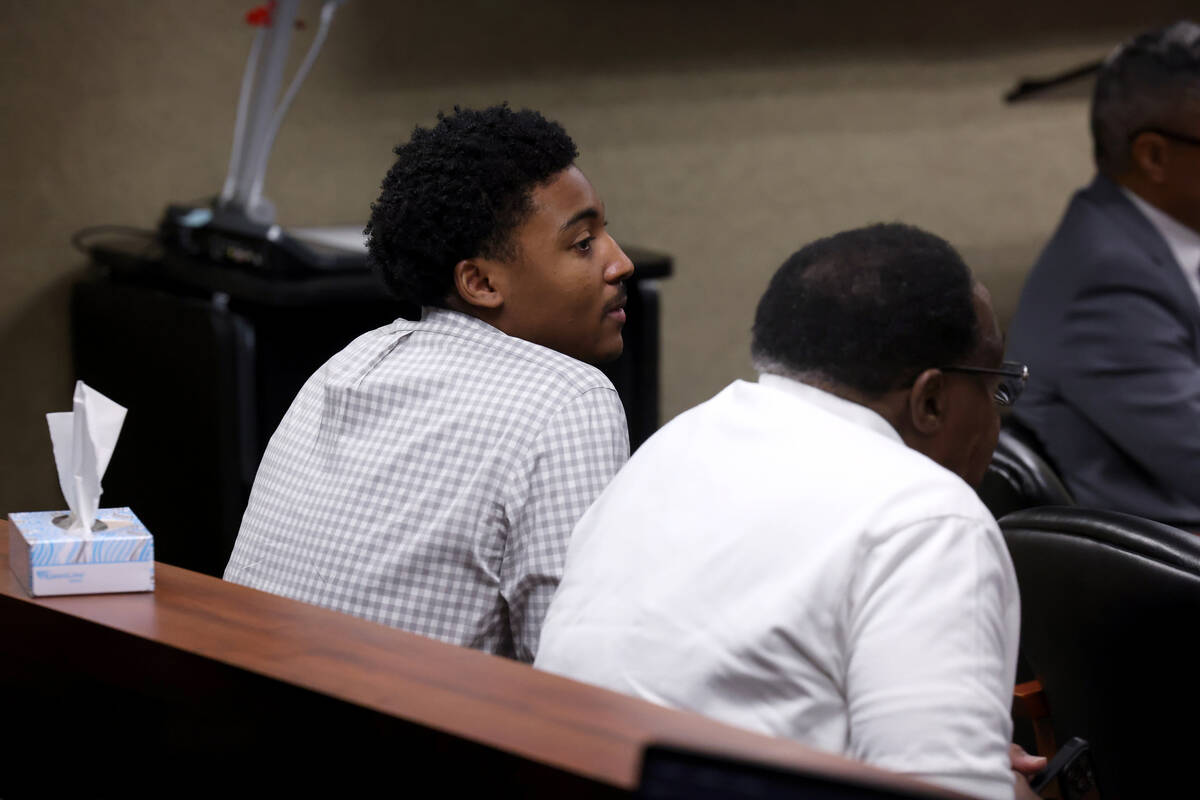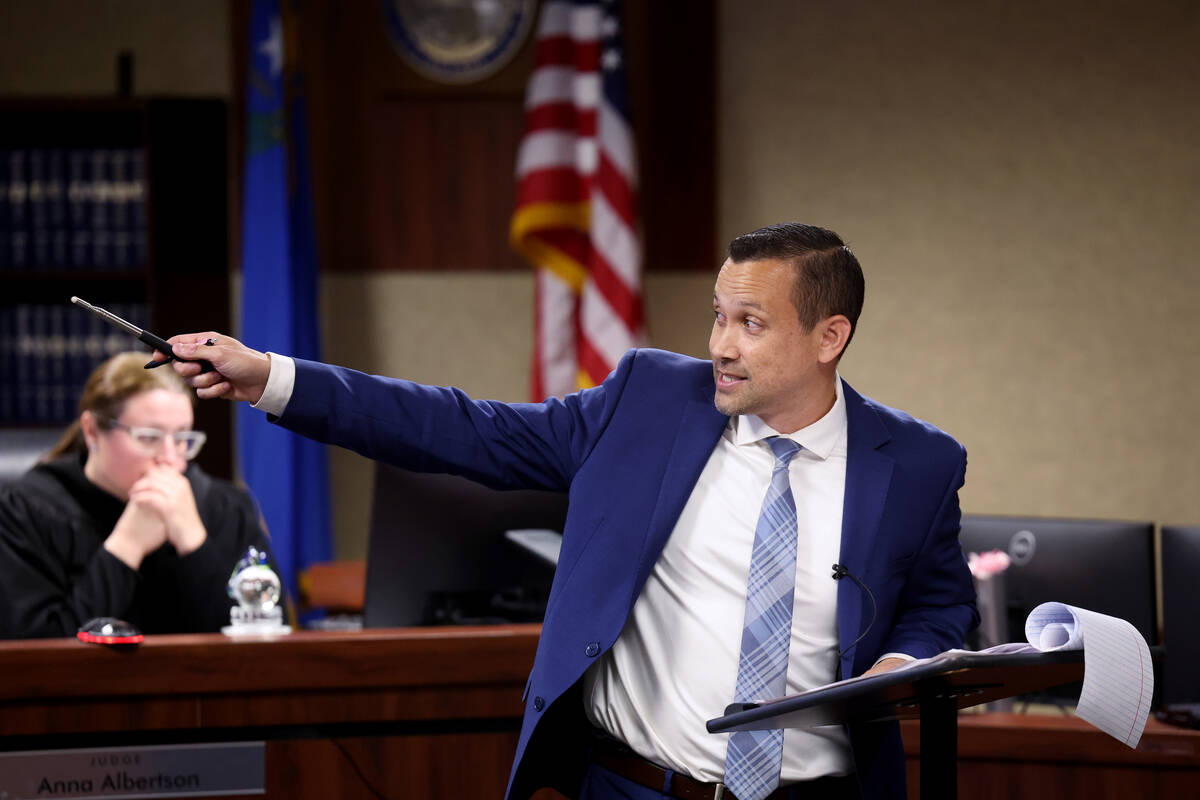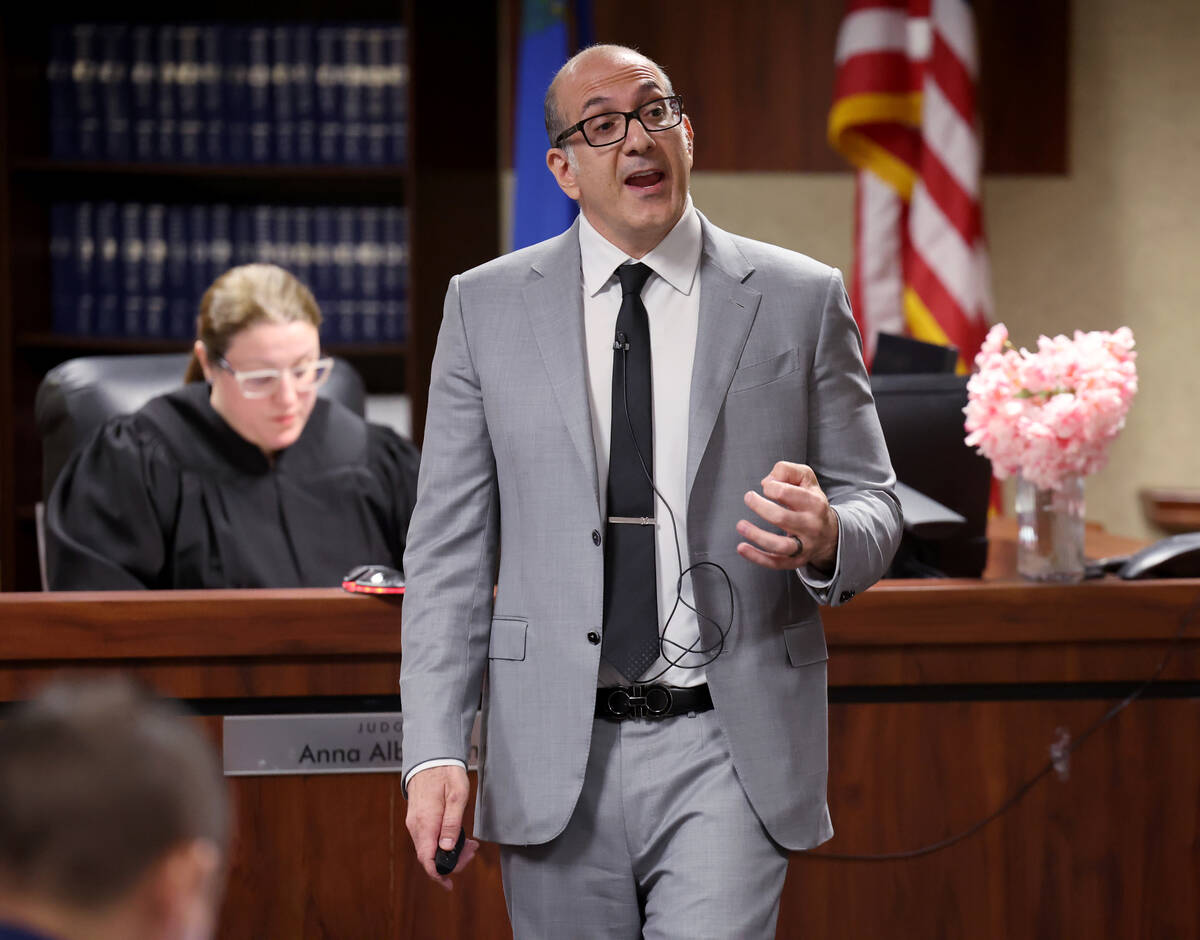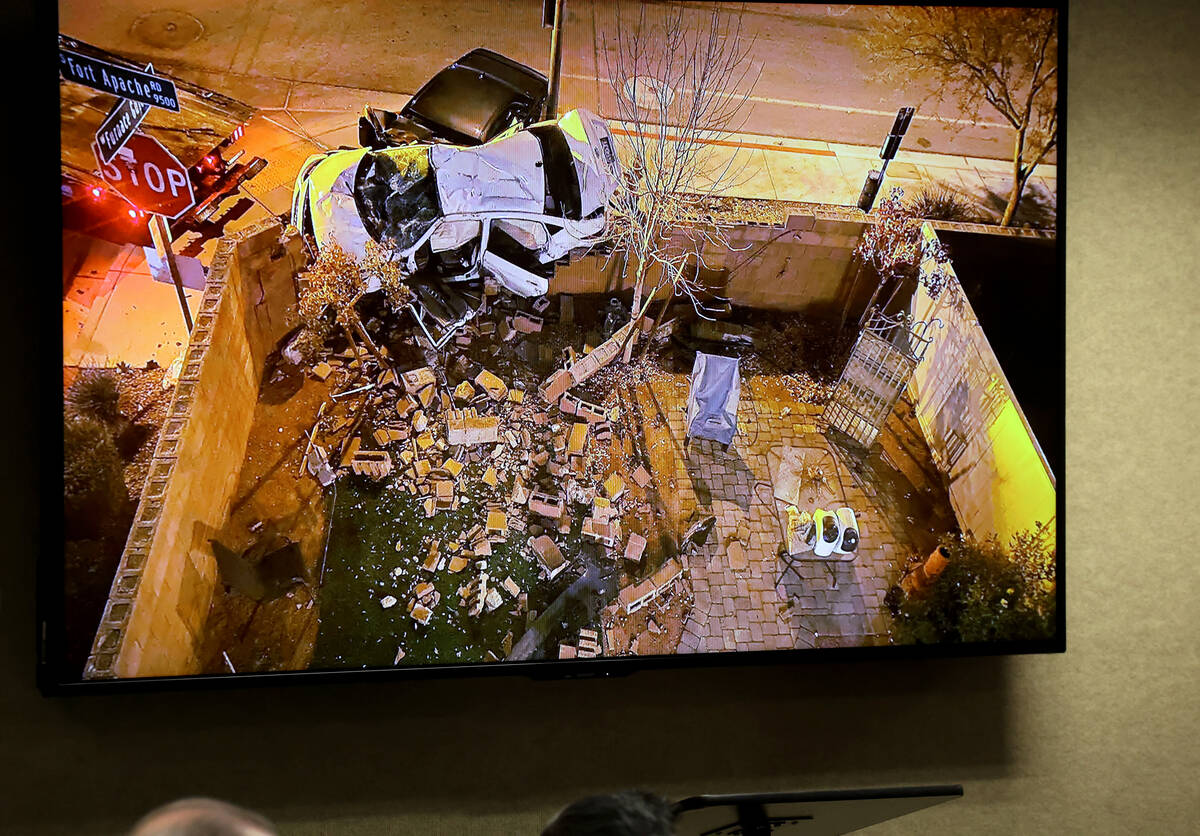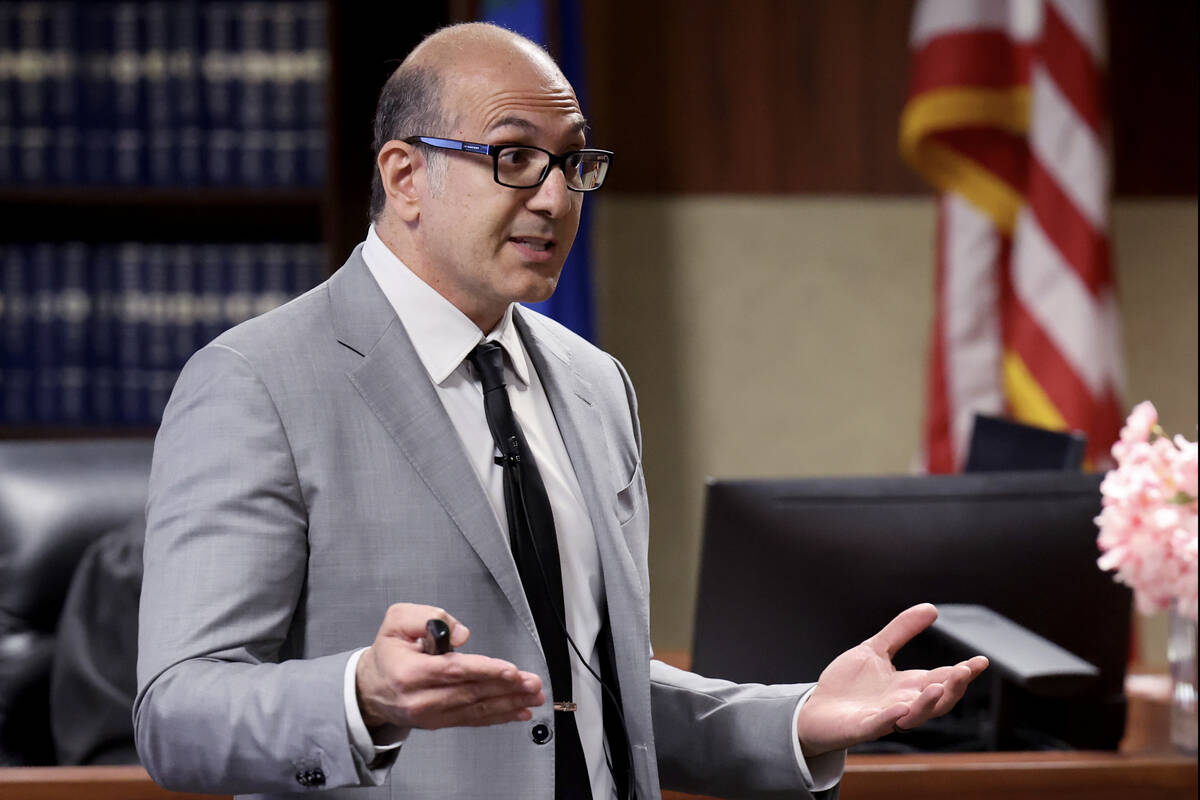Family of man killed by ex-Bishop Gorman basketball star asks jury for $35M
A jury began deliberating Monday in a civil wrongful death trial against a former Bishop Gorman basketball standout after hearing plaintiffs’ arguments that they should award $35 million plus punitive damages, and defense arguments that the award should be about $2.9 million.
Zaon Collins, a star UNLV recruit who is now a junior at Fresno State, killed another driver, 52-year-old Eric Echevarria, in a 2020 crash.
He was sentenced to three months in jail and three years of probation in 2023 after pleading guilty to reckless driving resulting in death and vehicular manslaughter, but ended up spending 56 days in jail.
Echevarria’s wife and son sued Collins in 2021, alleging wrongful death and negligence, and on Monday, attorneys made their final pitch to jurors about what caused the crash and how much money Echevarria’s family should get.
“What’s the reasonable amount of damages to award a woman who kisses her husband goodbye in the morning, goes through her day and the next time she sees him, he’s naked on a gurney, deformed, disfigured and deceased?” asked attorney Joseph Chu, who represents the plaintiffs.
Plaintiffs’ attorney Ramzy Ladah showed jurors photos of Echevarria’s mangled white Hyundai and bloody body. He told jurors they had an opportunity to send a message about traffic fatalities caused by speeding and the value of life.
Collins’ attorney, Stephanie Zinna, said the jury’s purpose was not to take a stand.
“We’re not here on a matter of principle,” she said. “We’re here to compensate this family.”
Jurors began considering the case late Monday afternoon but went home after less than 40 minutes and were expected to resume deliberating Tuesday.
Speeding and a left turn
Collins was completely at fault and his speed caused Echevarria’s death, Ladah said.
Police previously said Collins was driving 88 mph in a 35 mph zone shortly before the collision.
Collins testified Friday that Echevarria “just cut right in front of me.”
But Ladah argued Echevarria did not have to yield to Collins because Collins was far away from him. He added that Echevarria nearly made it through the intersection where the crash occurred, showing he did not turn in front of Collins.
“The excessively speeding car forfeits the right of way to the left-turning vehicle,” Chu said.
Zinna told jurors that Collins and Echevarria made “human errors.”
“Are we a community of vengeance or are we a community of fairness and forgiveness?” she asked.
Echevarria had the right to expect Collins was driving the speed limit, she said, and Collins had the right to expect Echevarria would not turn in front of him. Both Collins’ speed and Echevarria’s failure to yield caused the accident, she argued.
According to his attorney, Collins slammed on the brakes and swerved in an attempt to avoid the other driver.
Collins’ father, Marvin Collins, will be held liable for any damages resulting from his son’s negligence, according to jury instructions read by District Judge Anna Albertson.
Attorney Bradley Johnson, who represents Collins’ father, argued Collins could not have been more than 49 percent responsible for the crash.
Marijuana usage
Prosecutors previously said Collins’ system had 3.0 nanograms per milliliter of THC, the compound that gives marijuana its high, when the legal limit was 2.0 nanograms per milliliter. But a Metropolitan Police Department forensic scientist told a grand jury that there was not enough research to know when Collins consumed marijuana.
Grand jurors declined to indict him on a DUI charge.
Chu said Collins claimed he only used marijuana days before the crash when a friend gave him gummies that, unbeknownst to him, contained the drug. But the attorney said scientific testimony indicated that Collins used marijuana hours before the crash.
Collins violated the law because he was over the legal limit for marijuana and “he smoked the day of the crash,” Ladah alleged.
Zinna said her client did not show signs of impairment other than red eyes after being in a crash. She pointed out the grand jury’s decision not to indict.
“There’s a joke we hear in law school about grand juries: They will indict a ham sandwich if that’s what you put in front of them,” she said. “They still failed to indict Zaon on this charge.”



